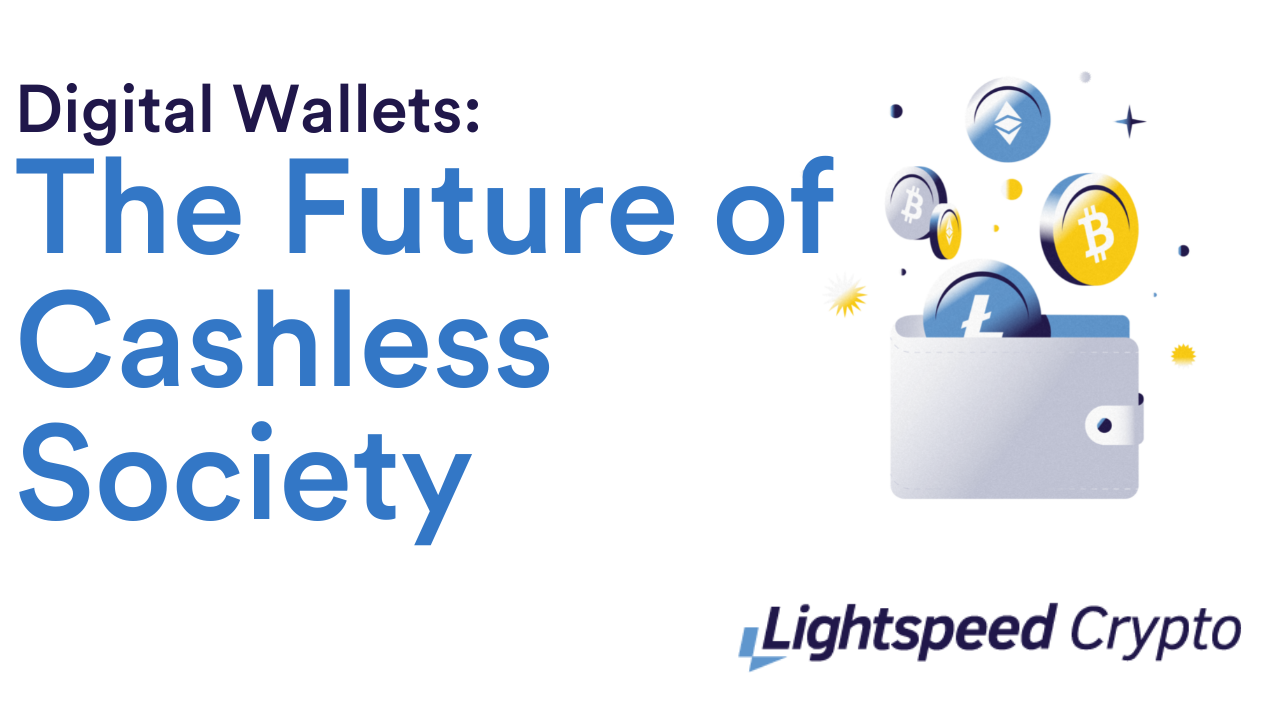Digital wallets: The future for cashless societies
A full overview of digital wallets and how they are modernizing the way consumers handle money and make purchases leading to a cashless society

Imagine a world where you can carry around one device that will give you access to everything you need.
- Pay for a cup of coffee.
- Buy diapers online.
- Take the bus to work.
- Board an airplane.
- Attend a baseball game.
- Start your car.
- Earn rewards for all your transactions.
The reality is that this world already exists. The Apple Wallet provides all these services. Their slogan, “Carry one thing. Everything.” captures the capability of their digital wallet.
Digital wallets encompass much more than an accessory to carry paper cash and credit cards. There are many types of digital wallets currently. Their primary function is to hold the digital form of fiat currency. Presently, users can still convert their digital money into physical cash. What if there is a point where there will no longer be any physical cash?
An analysis found leading economies are heavily transitioning to cashless societies. Experts believe cashless societies can exist as soon as 2022. Countries that are quickly adopting cashless systems are:
- Canada
- Sweden
- United Kingdom
- France
- USA
- China
The COVID-19 pandemic accelerated the adoption of going cashless. Behaviors changed significantly during this time and may persist even after the pandemic ends.
The development of a CBDC
A catalyst igniting this transition is the birth of bitcoin and its underlying technology. Blockchain and distributed ledger technology (DLT) have equipped nation-states to explore the development of central bank digital currencies (CBDCs).
A CBDC is “a digital liability of the central bank that can be used as a payments instrument,” per a paper by Payments Canada. CBDCs would most likely exchange with their paired fiat currency. Domestic monetary authorities would authorize CBDCs to categorize them as legal tender. This distinction is crucial in understanding the difference between CBDCs and current forms of digital money, which include:
- Online checking accounts as claims on commercial banks,
- Credit card purchases as claims on users by credit facilities, and
- Money is stored in digital wallets.
The development of CBDCs could provide many benefits to wholesale and retail use. “Because a CBDC will be digital instead of physical, it would require a digital ledger to record ownership or account balances,” explains Payments Canada.
There are different perspectives on the viability of CBDCs. However, the trend is pointing towards their inception in the future. Many countries are already exploring the development of CBDCs.
Where do cryptocurrencies fit in?
Unlike fiat currencies, cryptocurrencies incarnate in digital form. Cryptocurrencies and crypto wallets are native to the digital ecosystem. The coexistence of our current monetary systems and this new class of digital currency is the tension that arises when attempting to understand the evolution of a purely digital financial system.
Private institutions offer stablecoins, a pseudo form of a CBDC. Institutions claim that their stablecoin offering is backed by legal tender or other assets. Some examples of trading on the markets are:
- Tether (USDT)
- USD Coin (USDC)
- Binance USD (BUSD)
- Dai (DAI)
- True USD (TUSD)
- Pax Dollar (USDP)
These stablecoins provide some stability when trading cryptocurrencies or tokens. Bitcoin (BTC), Ethereum (ETH), Cardano (ADA), Ripple (XRP), and Chainlink (LINK) are a few leading examples based on market cap.
These purely digital assets or forms of currency require digital wallets in some shape or form. Perhaps some form of physical representation of money will exist. However, it will only be a matter of time where digital forms of money represent the primary method of accounting for, storing, and exchanging money.
So, why do you need a digital wallet?
Adopt digital wallets so you can operate in a digital ecosystem. Apple Wallet already demonstrates its usefulness for average consumers. Nations may offer their own sanctioned wallets to store and use CBDCs. Financial institutions will upgrade their existing technology to incorporate advanced features of digital wallets. Professional and active traders can utilize personal digital wallets to access markets, traditional and emerging.
Your digital wallet is your all-in-one solution to participate in the digital economy.